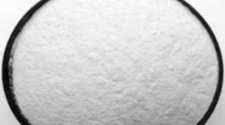Inosine Supplements: Are There Any Benefits of Inosine in Bodybuilding?

There are Many Different Supplements Paths to Explore in Bodybuilding
A common question we get here at fitFLEX is about inosine. Some people have heard that it's a performance enhancer
in the past by Russians and may contains many other benefits for bodybuilders alike. We'll let's take a closer look
shall we? It was once rumored that Eastern Bloc athletes were using inosine. We've reviewed the scientific literature
and previously classified documents from the Communist sports machine, and have seen no proof of noticeable gains in
muscle mass or strength in Russians supplementing with inosine.
Their use of performance-enhancing drugs and huge success in weightlifting led to a great deal of curiosity about
former Soviet-bloc training and supplementation practices. Guys hear the Russians were using something and, because
of the secrecy that once shrouded the Communist athletic program, they sometimes think, Hey if the Russians were
taking it, the stuff must work. Unfortunately, the claims of super supplements coming from Russia have more to do
with marketing than scientific truth. The reality is that a great deal of Russia's success in Olympic sports was due
to "orthodox" drug use and systematic training rather than the use of cutting-edge nutritional supplements.
Inosine is sold as an energy booster and strength enhancer. As far as classifying this nutrient, it's a precursor and
metabolite of adenosinc (a nucleoside containing adenine and ribose). The theory behind its use is that augmenting
inosine levels within muscle cells will increase the synthesis of adenosine triphosphate (ATP) by providing extra
building blocks for this substance. Within the cell, inosine may also promote protein synthesis and increase oxygen
utilization, which would he attractive to endurance athletes such as runners. Although this sounds good, there may be
negatives associated with mega dosing inosine.
In humans, plasma levels are used as a marker for ischemia (a local temporary decrease in the blood supply to tissues)
and anaerobic stress. Research has shown inosine is metabolized by an enzyme that drastically increases oxygen radicals
in the body. Along with damaging muscle cells and other tissues, free radicals have been implicated in contributing to
cancer and heart disease. From a performance and long-term health standpoint, you want to minimize the formation of
free radicals.
A practical concern for those considering supplementing with inosine is that animal studies have demonstrated oral
inosine to be degraded and rendered almost useless by the gastrointestinal tract. This means that even if you take the
stuff, it may not be absorbed and utilized by your body.
In summary, the science behind inosine is lacking and what is present in the literature shows it may actually be
detrimental to performance - and possibly health - if taken in high dosages for extended periods. The best advice for
now is to take a wait-and-see approach to this "secret" Russian performance enhancer.